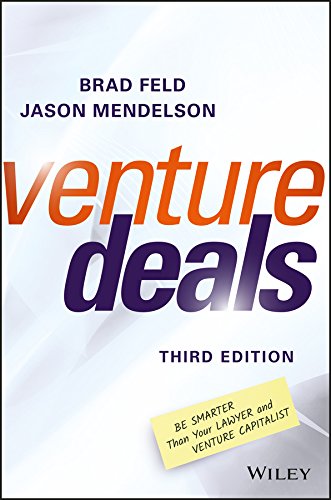You have idea, you’ve found a co-founder and maybe even built a product and have some early customer traction. The next step? If you’re building a venture scale company, you probably want to open a Seed Round.
Raising you Seed Round of Funding
Incorporation: In the United States, investors won’t even look at you unless you are a Delaware C Corp. Limited Liability Companies (LLCs) and other business entities are not as well set up to take on outside funding, so it’s often too much legal work for investors to carry.
Many founders go with a LLC structure in the beginning because a C-Corp is “double taxed”, whereas an LLC only pays taxes once. HOWEVER, in reality because startups reinvest most if not all of their profits, they rarely actually get doubled taxed.The SEC (Securities and Exchange Commission) Fight Club Rule: The SEC passed a rule in 2015 called Rule 506(c) which prohibits companies from “General Solicitation”. This means that companies are not allowed to advertise or publicly disseminate information about the round (or anything that involves exchanging money for equity). This includes: how much money you are raising, your valuation, what you would do with the money, burn rate or runway.
A lot of startups and publications are unaware of this rule and can get in trouble with the SEC, which as a cash strapped startup, in the last thing you need. So who can you talk to? According to the SEC, only accredited and sophisticated investors. Generally, anyone at a VC firm and accredited angel investors. A person will know if they are accredited or not and don’t be afraid to ask. In closing: the second rule of fundraising: you don’t talk about fundraising.The Checklist: Despite not being able to publicly talk about your raise amount, valuation and burn rate, milestones, and runway, these are things that you will need to know when you do land a meeting or call with an investor. For Seed Rounds, investors typically like to see a raise amount that will give you 18 months or more of runway.
When calculating your pre-money valuation, keep in mind that you don’t want to give away more than 25%-30% of your company in your first raise. For example, if you are asking for $1M and your pre-money valuation is $3M, once you raise $1M you would have given up 25% of your company ($1M / [$1M + $3M] = 25%). Your burn rate and runway is completely dependent on what city you are in (overhead) and how much you need to pay yourselves and your staff to remain competitive.
This is far from a complete list, it’s merely the top three things I wished I’d known when we started getting into venture capital. If you want to know more gritty details, check out Venture Deals by Brad Feld:
and these other books on building a startup.









